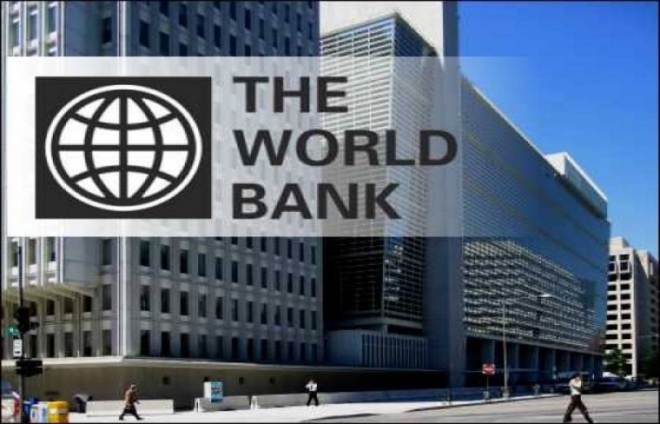Some additional two million people will benefit from a second phase of the West Africa regional Food Systems Resilience Programme (FSRP-2) approved for a total amount of $315 million in International Development Association (IDA) financing.
FSRP-2 will support Chad, Ghana and Sierra Leone to increase their preparedness against food insecurity and to improve the resilience of their food systems. This comes at a moment where it is projected that approximately 38.3 million people in West Africa are projected to be in food security crisis.
Across the targeted areas in the three countries, FSRP-2 will help to reduce food insecure people by 25%.
Access to hydro and agrometeorological advisory services will be extended to over 400,000 food system actors, while nearly 500,000 producers are expected to adopt climate smart agricultural technologies. Moreover, about 12,000 hectares of land area will benefit from integrated landscape management practices, and intra-regional traded productions in selected value chains will increase by 30%.
“Multiple shocks, driven by climate change and environmental degradation, weaknesses of the food markets, conflicts and insecurity, Covid-19 implications, and the war in Ukraine have further deteriorated food insecurity and inflation across West Africa”, declared Massandjé Toure-Litse, the Commissioner for Economic Affairs and Agriculture at the Economic Community of West African States (ECOWAS).
“FSRP-2 further expands cooperation across the ECOWAS region to ensure food security, now and into the future.”
More specifically, the new financing will help to (i) increase the effectiveness of agriculture and food crises prevention and management and strengthen the capacities to adapt to climate variability and change, (ii) strengthen the adaptive capacity of the food system’s productive base and make it sustainable, and (iii) support the regional food market’s integration by linking the beneficiary countries, consolidating their food reserve systems, and strengthening the development of strategic regional value chains”.
“Facilitating the trade of agricultural goods and inputs within and across national borders in West Africa is a key element to address food insecurity in the region”, said Ousmane Diagana, World Bank’s Vice-President for Western and Central Africa.
For Boutheina Guermazi, World Bank’s Director for Regional Integration for Sub-Saharan Africa, the Middle East and Northern Africa, “The approval of FSRP-2 and incorporation of Chad, Ghana and Sierra Leone expands impacts not just of national activities, but of targeted spill-over effects from regional activities. We are eager for this innovative program to maximize its reach across West Africa”.
With FSRP-2, the multi-phase FRSP program now amounts to a total of $645 million of IDA (instead of the $570 million initially approved in November 2021). The first phase of the programme (FSRP-1, $330 million, approved in November 2021) launched in June 2022, bringing together four countries (Burkina Faso, Mali, Niger, Togo) and three regional organizations (the Economic Community of West African States, ECOWAS; the Permanent Interstate Committee for Drought Control in the Sahel, CILSS; and the West and Central Africa Council for Agriculture Research and Development, CORAF) to implement a broad programme to increase agricultural productivity, promote intraregional value chains and trade, and build regional capacity to manage agricultural risk.
It is expected that both FSRP-1 and FSRP-2 will reach a total of 4.35 million direct beneficiaries (including farmers) across West Africa, with focus on women and youth.
The World Bank’s International Development Association (IDA), established in 1960, helps the world’s poorest countries by providing grants and low to zero-interest loans for projects and programmes that boost economic growth, reduce poverty, and improve poor people’s lives.
IDA is one of the largest sources of assistance for the world’s 77 poorest countries, 39 of which are in Africa.
Resources from IDA bring positive change to the 1.5 billion people who live in IDA countries. Since 1960, IDA has supported development work in 113 countries.
Annual commitments have averaged about $18 billion over the last three years, with about 54 percent going to Africa.
Latest Stories
-
Ghana will take time to recover – Akorfa Edjeani
4 minutes -
Boakye Agyarko urges reforms to revitalise NPP after election defeat
22 minutes -
Finance Minister skips mini-budget presentation for third time
23 minutes -
‘ORAL’ team to work gratis – Ablakwa
31 minutes -
Affirmative Action Coalition condemns lack of gender quotas in Transition, anti-corruption teams
40 minutes -
December 7 election was a battle for the ‘soul of Ghana’ against NPP – Fifi Kwetey
42 minutes -
Social media buzzing ahead of Black Sherif’s ‘Zaama Disco’ on December 21
56 minutes -
Afenyo-Markin still suffering from the massive defeat – Fifi Kwetey
1 hour -
Retain Afenyo-Markin as NPP leader, he has experience – Deputy Speaker
1 hour -
Kufuor didn’t leave behind a strong economy – Fifi Kwetey
1 hour -
It won’t be business as usual, remain humble – Fifi Kwetey to party members
2 hours -
Ebenezer Ahumah Djietror appointed as new Clerk to Parliament
3 hours -
Actress Benyiwaa of ‘Efiewura’ TV series dead
3 hours -
Ashanti Regional Chief Imam dies at age 74
4 hours -
Africa Arts Network calls for tax reform to save Ghana’s theatre industry
4 hours

